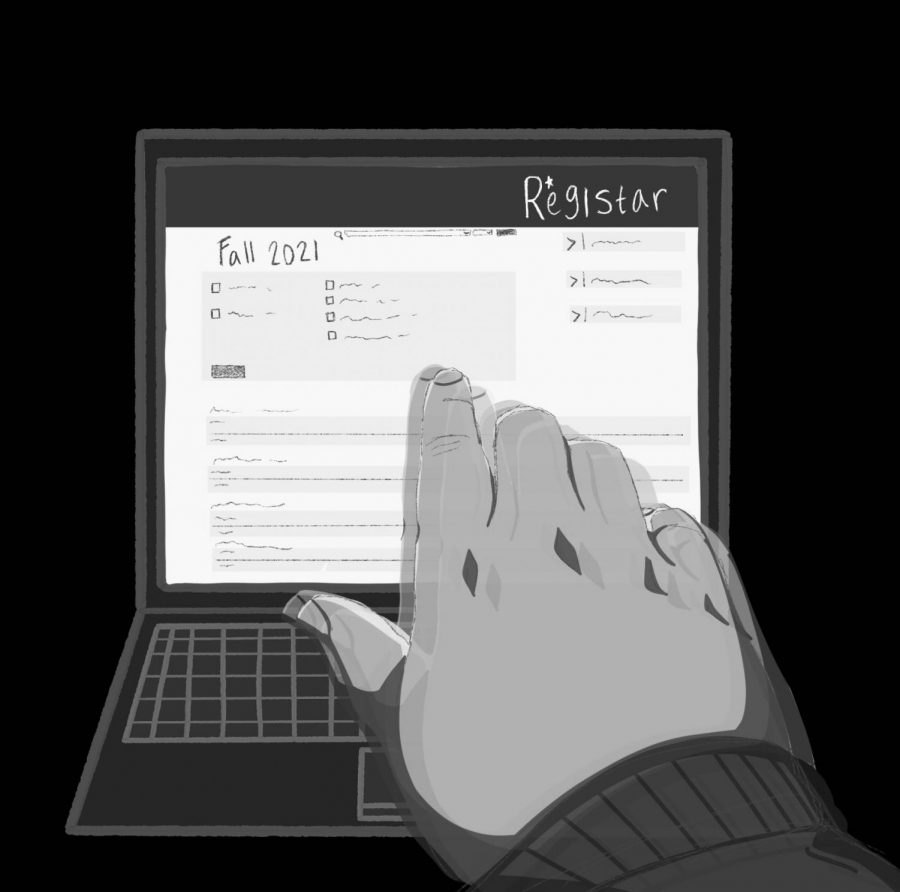Who’s teaching your class? You deserve to know.
June 21, 2021
Editor’s Note: This article first appeared as part of the June 8 flipbook.
Content Warning: This column contains discussion of sexual misconduct and assault.
Coleman Hutchison. Kevin Dalby. Sahotra Sarkar. What do these three names have in common? They’re all in the UT Austin Sexual Misconduct Database.
After an investigation conducted by the Office for Inclusion and Equity , these faculty members were found to have violated the University’s policies prohibiting sexual misconduct. Despite this, Dalby and Sarkar are teaching during the summer 2021 semester and all three will be teaching courses during the fall 2021 semester.
Since UT unfortunately remains undeterred by the sexual misconduct of its professors and continues employing them, students deserve the right to choose whether to take their classes. However, students often don’t know who’s teaching a class when they sign up for it.
It is beyond time for the University to prioritize student safety on campus and list all professors on the course schedule before registration begins.
During registration for the fall 2021 semester, some students signed up for a class without a professor listed and later discovered that it would be taught by Sarkar, leading one student to drop the class. While students can drop classes after the initial registration period, they may not have the option of doing so if other professors’ classes are already filled and they need the credit to continue with their degree.
Isabelle, a student and survivor of sexual assault, explained how she felt after discovering that her professor had been accused of sexual misconduct. Her last name has been withheld to maintain anonymity.
“I just joined the class and assumed that my professor would be a respectable person, but knowing the allegations — as a survivor myself — I felt like the rug had been taken out from under me,” Isabelle said. “It was one of my favorite classes, (but) I lost interest in it. I stopped going to classes, and I didn’t pursue my education because of discomfort.”
How can survivors feel comfortable signing up for a course without knowing if the professor will be someone who has a history of sexual misconduct? How can survivors learn in an environment that may be re-traumatizing?
Transparency regarding who will be teaching each course allows students to avoid courses taught by professors that would force them to make compromises between their comfort and their education.
Kathleen Harrison, communications manager for the Office of the Executive Vice President and Provost, declined to interview and instead referenced her previously published statement explaining why course instructors may not be listed before registration.
“Sometimes a faculty member is not yet assigned to a specific class by the time registration opens due to various factors including the vetting of credentials for instruction,” Harrison said in an email.
Harrison’s explanation regarding the vetting of credentials seems inefficient, however, since professors such as Sarkar are not new to the UT system and have taught for years. While other bureaucratic factors may be at play, failing to provide a more thorough explanation, particularly regarding the course that Sarkar is teaching, comes across as a lack of transparency.
“Part of respecting (survivors) is being honest about who’s teaching us,” Isabelle said. “It feels like (UT is) withholding the truth … and even if they aren’t, it’s hurting survivors, and it’s hurting students at UT. They should care about that.”
Tran is a Plan II and English sophomore from Houston, Texas.











